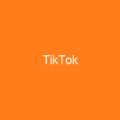Why Are Countries Banning or Restricting TikTok?
Many countries have taken action against TikTok due to a variety of reasons, from national security concerns to the well-being of children and offensive content.
In Africa
TikTok’s journey in Africa has been marked by both bans and temporary restrictions. In Kenya, unregulated content on the platform sparked controversy. Senegal followed suit after blocking TikTok following the arrest of opposition leader Ousmane Sonko, hoping for a regulatory agreement before lifting the ban. Somalia’s ban was due to concerns over propaganda and indecent content, though it wasn’t strictly enforced. Afghanistan banned the app for misleading younger generations and its non-compliance with Islamic laws. Armenia saw no government intervention regarding Azerbaijani misinformation, while Azerbaijan restricted access multiple times during the Nagorno-Karabakh conflict.
In Asia
China’s international version of TikTok does not function on local networks in mainland China or Hong Kong. India banned the app in 2019 for promoting pornography and inappropriate content, a decision that cost it an estimated 15 million new users. The ban was later lifted after the Madras High Court reversed its order. Pakistan faced four bans over concerns about immoral and vulgar content, while Indonesia temporarily blocked TikTok due to accusations of promoting ‘pornography, inappropriate content, and blasphemy.’ Iran’s restrictions on TikTok are a mix of both platform rules and Iranian censorship.
Other Countries
TikTok faced temporary bans in Jordan following the death of a police officer during protests. Kyrgyzstan banned the app citing concerns about children’s development but lifted it shortly after. Nepal initially banned TikTok due to social harmony being disturbed by ‘misuse,’ though the ban was later lifted with an agreement between TikTok and the government. In Pakistan, the app faced repeated bans from the Punjab PTA over similar issues.
Europe
Countries in Europe have also taken steps against TikTok due to various concerns. Belgium banned the app from federal government work devices, while Czechia warned against it due to cybersecurity and privacy risks. Denmark’s Ministry of Defence banned TikTok on work devices, and Estonia followed suit by banning its use and installation on state-issued smartphones. France banned ‘recreational applications’ including TikTok for government employees due to data security concerns.
North America
In the United States, the app faced bans at various levels of government. The U.S. House of Representatives passed a bill in March 2024 that would effectively ban TikTok unless it is divested from ByteDance within 180 days. On January 17, 2025, the Supreme Court upheld the constitutionality of this law, leading to a nationwide ban on all devices.
Australia and New Zealand
Some Australian federal agencies have banned TikTok on work-related mobile devices, while state governments are considering similar measures. France issued a temporary ban in New Caledonia due to protests over election law changes. The New Zealand Parliamentary Service also banned the app on devices connected to Parliament, citing cybersecurity concerns.
The Impact of Bans
These bans and restrictions have had significant impacts on users and the platform itself. For instance, India’s ban might have cost TikTok 15 million new users, while in Pakistan, the app faced repeated bans over concerns about immoral content. The challenges for TikTok are clear: balancing user freedom with national security and ethical standards.

The journey of TikTok through these bans and restrictions is a complex one, reflecting the delicate balance between technological advancement and societal concerns. As countries grapple with issues ranging from national security to children’s well-being, the future of platforms like TikTok remains uncertain but crucially important.
You want to know more about Censorship of TikTok?
This page is based on the article Censorship of TikTok published in Wikipedia (retrieved on January 21, 2025) and was automatically summarized using artificial intelligence.





